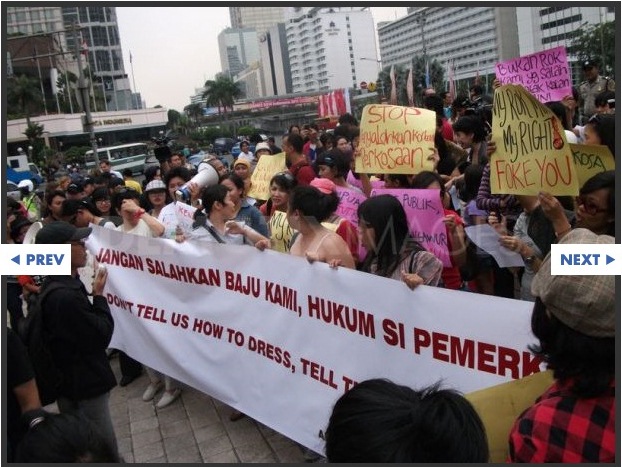Street harassment is a normalized experience. Even though it negatively affects our lives, it’s seen as no big deal and the way things are. This normalization is even greater in poor inner-city communities, according to researchers Susan Popkin and Robin Smith, and the negative effect it has on girls is chilling.
On the Urban Institute blog they write:
“People living in poor inner-city communities have to cope daily with levels of violence and drug trafficking that most of us in more affluent neighborhoods can barely imagine. The families we interviewed in Chicago and Los Angeles this past summer who live in public housing or rent with Housing Choice (Section 8 ) Vouchers in poor neighborhoods readily talked about shootings and fights and boys they knew who had been shot and died. But getting them to talk about the sexual violence and harassment that girls experience was harder—not because it was a sensitive subject, but because it was so ordinary.
Dating violence is so common and so visible that the people we interviewed no longer find it shocking. And men and boys in their communities commonly make sexual comments to girls, try to grab them, and pressure them for sex. Girls aren’t safe at school either, where they risk being called “cold” or “gay” if they ignore the teasing or “fast” or a “ho” if they respond.
Living with daily harassment, coercion, and dating violence takes a toll on girls growing up in these communities and may contribute to the high rates of depression and other health problems there. Our earlier research found that girls whose families used special vouchers to move to less poor neighborhoods were less depressed and anxious than those who stayed behind. When we asked some what was different in the new environment, they talked about how much better they felt getting away from the sexual pressure and harassment…
But not every girl can move to escape sexual torment. Most poor families can’t afford to live in a better, safer place. Given that, we need to treat sexual coercion and harassment of girls as seriously as more visible gun violence and drug trafficking. For both, we need to come up with both criminal justice and community-building solutions that will help improve the lives of our most vulnerable youth. If we don’t, chances are these young girls and their children will face the same limited prospects that their mothers have.”
YES. It must be taken seriously and I would love if it was addressed at the same level as gun violence and drug trafficking!
I know there are people who don’t feel comfortable addressing the violence committed by marginalized groups of men against women in their community, but that does a disservice to the women they harass and hurt. They don’t deserve that treatment. Addressing the harassment and violence may require a different approach than harassment and violence committed by non-marginalized me, but it still needs to be addressed.
To expand on that, what I’ve noticed through my research is that men who are marginalized may harass women as a way to exert power when they feel powerless in other arenas of their life. Men who are not marginalized may harass women out of their sense of entitlement. The outcome for women is the same, but again, since some of the reasoning differs, the approach to stop the harassment may need to differ, too. Differences in relationships with police and structural power, as well as possible language or cultural differences have to be taken into account as well.
For more on this topic, check out Jody Miller’s book Getting Played: African American Girls, Urban Inequality, and Gendered Violence. She similarly talks about how sexual violence in dating relationships and by men on the streets is so common for girls and young women and so normalized in their community that bystanders see it happen and don’t blink twice (although the silence of bystanders is frequent no matter the neighborhood). Compared to gang violence and drive-by-shootings boys/men cause and experience, the harassment and violence girls/women face at the hands of boys/men is dismissed as an issue. She also highlights the negative effect it has on the lives of girls, women, and then the community at large. It’s an important read.

